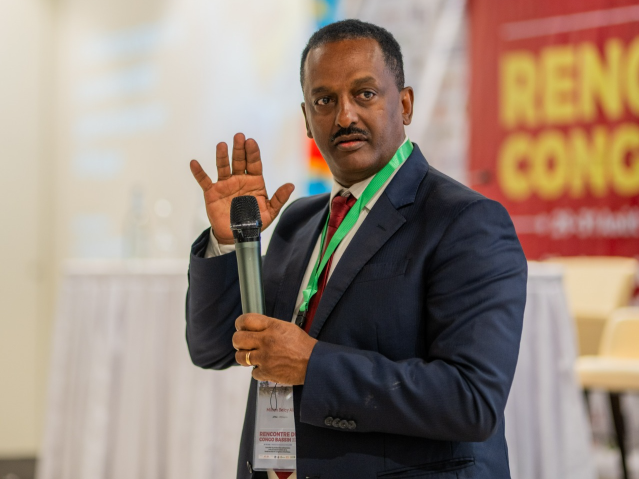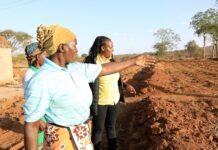The Alliance for Food Sovereignty in Africa (AFSA), representing a coalition of 41 African civil society organizations, has called for a complete overhaul of the African Union’s proposed 10-year Fertilizer and Soil Health Action Plan 2023-2033 and instead rooting for agroecology to protect biodiversity.
According to Dr. Million Belay, AFSA General Coordinator, the African Union (AU) action plan’s strong emphasis on the extensive use of mineral fertilizers, hybrid seeds, and agrochemicals is a continuation of outdated and potentially harmful practices and that these approaches misunderstand the actual issues affecting soil health and could worsen soil degradation, putting food security, public health, and vital seed diversity in Africa at risk.
“Civil society has a pivotal role in the fertilizer and soil health debate, not only by linking actors across the value chain but by challenging narratives that threaten seed diversity and pushing back against the productivist agenda that prioritizes yields over nutrition, health, and environmental integrity. It’s disconcerting that African civil society was not consulted in the planning of the African Fertilizer and Soil Health Summit nor in the formulation of its 10-year plan,” said Belay.
AFSA promotes a transition to agroecology, which combines local expertise with scientific advancements to rejuvenate biodiversity and strengthen resilient food systems. Despite this, the current strategy overlooks these sustainable methods, wrongly treating agroecology as a supplement rather than a complete solution to Africa’s food security issues.
Ferdinand Wafula of Bio Gardening Innovations in Kenya stated, “We must protect our soils for future generations. An African proverb says, ‘We borrow land from our children.’ We call on policymakers, governments, and donors to increase funding for these alternatives, as they address a wide range of problems, from nutritional deficiencies to climate change and rising commodity prices.”
He added that Africa is not a monoculture and therefore there is a desire that a variety of crops grown with ecological practices since synthetic materials harm microorganisms.
AFSA highlights that the existing plan worsens economic pressures by boosting reliance on costly imported fertilizers, benefiting a few fertilizer companies while causing African farmers to struggle with rising expenses. This economic disparity reveals a misguided focus that favors industrial agriculture firms at the expense of supporting smallholder farmers in Africa.
AFSA’s recommendations
The lobby group recommends that African countries adopt agroecology to promote sustainable food security, alleviate poverty, and conserve biodiversity.
In this, it proposes the following:
A Redefine the Narrative: Transform the focus from reliance on synthetic inputs to highlighting African farmers’ ability to develop resilient and diverse food systems through agroecological methods.
Challenge the Productivist Focus: Reject the dominant approach that emphasizes high yields at the expense of nutritional quality, health, environmental sustainability, and cultural significance.
Participatory Policy Making: Engage farmers and civil society in the agricultural planning process to ensure policies align with the genuine needs and circumstances of those central to the food system.
Boost Agroecology Funding: Significantly increase investments and financial support for agroecological practices that improve soil health and fertility.
AFSA supports the AU’s recognition of the need to combat land degradation and restore soil biodiversity but believes the current emphasis on increasing chemical inputs is counterproductive. This approach benefits corporations while disadvantaging smallholder African farmers.
The organisation advocates for a thorough reassessment of the Fertilizer and Soil Health Action Plan, prioritizing farmer empowerment, biodiversity conservation, and resilient food systems through agroecological and locally adapted methods.
“This includes promoting participatory research methods that engage farmers in co-creating knowledge and adapting agricultural techniques to local contexts,” it stated.
AFSA has 41 member organizations active in 50 African countries, impacting approximately 200 million individuals.









